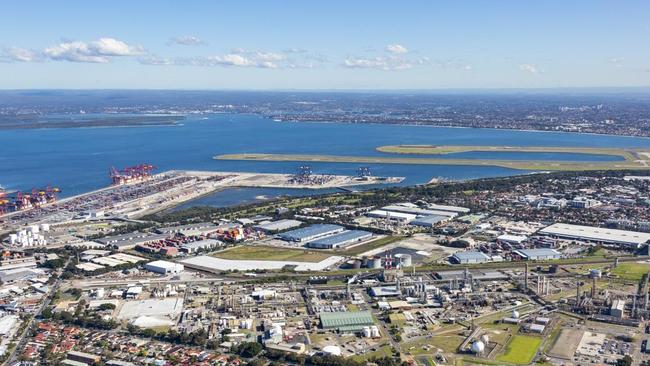Energy intensive manufacturers ’genuinely living on the brink’, industry warns
Energy-intensive industries are ‘genuinely living on the brink’ with the collapse of Qenos a clear signal of the distress felt by other major manufacturers.

Unions and Orica boss Sanjeev Gandhi have warned that Qenos may not be the last company to fall, with AWU national secretary Paul Farrow warning that energy-intensive industries were “genuinely living on the brink”.
Qenos was put into administration this week by its new owners, companies associated with industrial property developer Logos. Administrators McGrathNicol have flagged the permanent closure of Qenos’s Sydney manufacturing plants, and substantial doubt surrounds the future of the company’s Altona plant in Melbourne.
Mr Farrow’s comments were echoed by Orica managing director Sanjeev Gandhi, who told The Australian Qenos’s closure should be a clear signal of the distress felt by other major manufacturers, particularly those that use gas as a key input.
“We are extremely disappointed that one of our heavy manufacturing peers is shutting down their Australian manufacturing facilities and our thoughts are with their impacted staff,” Mr Gandhi said.
“This unfortunate outcome is yet another sign that heavy manufacturing in Australia remains extremely distressed and gets more and more challenging with extremely high and unsustainable natural gas prices, energy costs and wage inflation putting sovereign manufacturing capability and high-paying Australian jobs at risk.”
Qenos’s collapse came only a week after Prime Minister Anthony Albanese launched the federal government’s new manufacturing strategy, promising a greater government role in the sector and putting it at the centre of Labor’ re-election hopes.
Mr Farrow said the AWU supported the government’s plan to reinvigorate the manufacturing industry, but the focus should not just be on new industries such as solar panels and critical minerals processing.
“If Australia wants to be a manufacturing powerhouse tomorrow we can’t allow our established manufacturing base to collapse today,” he said.
“This news must be considered a grave warning to government that our energy intensive industries are not bluffing – they are genuinely living on the brink.”

Ai Group chief executive Innes Willox said the Qenos administration reflected the erosion of key pillars of Australia’s industrial landscape.
“Federal and state governments have begun to refocus on industry strategy just as the consequences of many years of inattention and lightweight policy are being felt,“ he said.
Mr Willox said that even if the federal government’s mandatory code of conduct for natural gas producers kept prices stable, gas would still cost three times its value before the massive Queensland LNG developments.
“Qenos is surely not the only industrial gas user to be unviable at these prices, and more businesses may shrink or collapse without the local product supply and demand for goods and services that Qenos provided. Full reliance on imported inputs will mean some businesses have no compelling reason to manufacture locally,” he said.
While the long-term future of Qenos’s Altona manufacturing centre remains unclear, McGrathNicol administrator Jason Preston sent a circular to Qenos customers on Thursday making it clear the plant would continue to operate in the near term.
“The Qenos group currently has a range of finished goods inventory and is continuing to produce certain grades at Altona and is able to continue filling customer orders,” the circular said. “We encourage you to place your orders in the ordinary course.”
Logos has committed to funding the voluntary administration, McGrathNicol says, including the payment of redundancies for existing staff.
Mr Farrow said the company’s administrators should do everything possible to ensure the survival of the Altona manufacturing centre.
“If there’s a chance of retaining operations we want every option explored. We will be meeting with the administrators and with Qenos leadership to make sure no stone is left unturned,” he said.





To join the conversation, please log in. Don't have an account? Register
Join the conversation, you are commenting as Logout